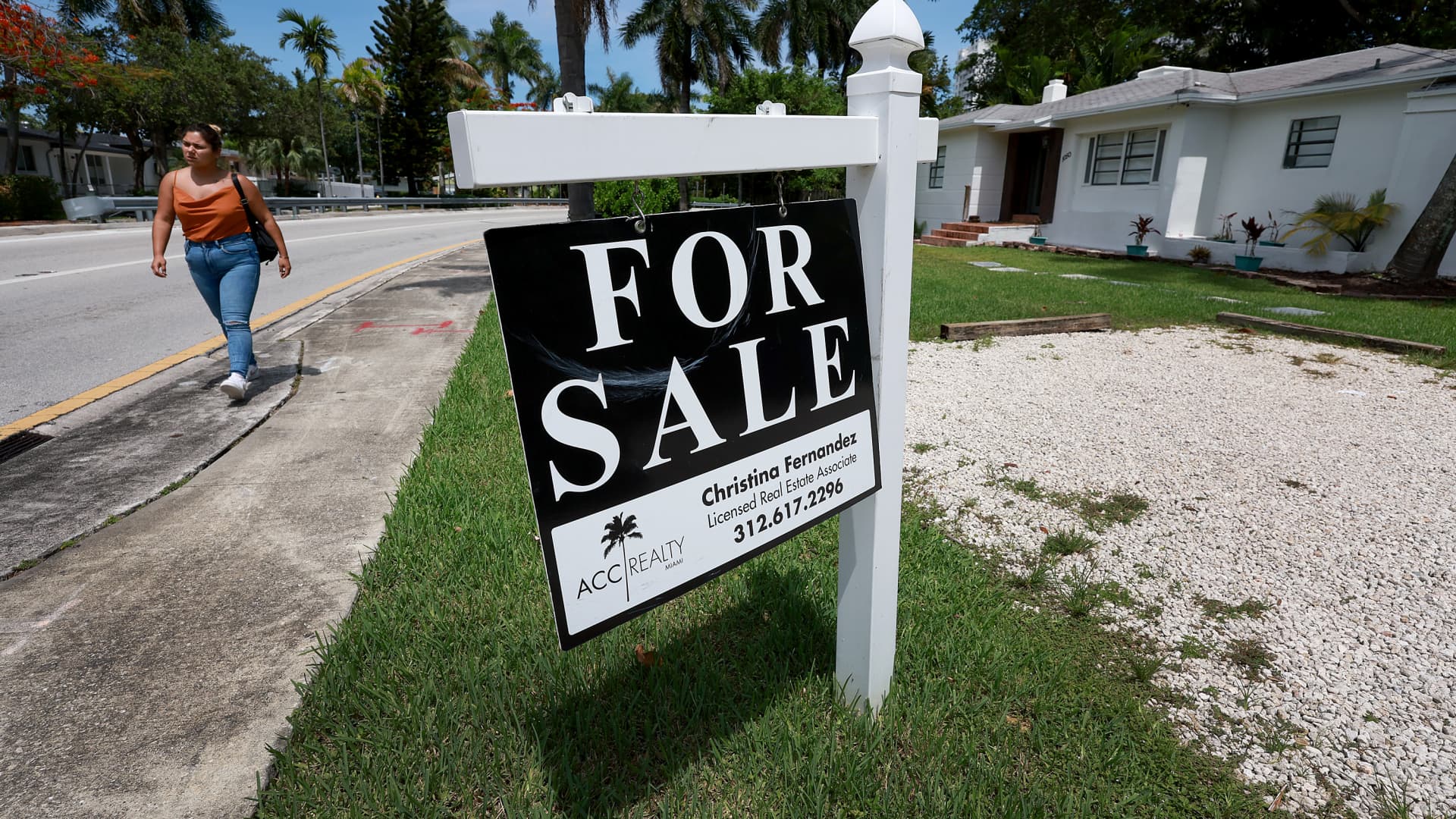As the U.S. housing market cools, feverish competition for homes in the past couple of years has left 72% having regrets about their home purchases, according to a recent survey from Clever Real Estate.
The number-one reason for the buyer’s remorse: 30% of respondents said they spent too much money.
The second most common regret was rushing the home-buying process, with 30% saying their purchase decision was rushed and 26% indicating they bought too quickly.
The online survey was conducted in July and included about 1,000 individuals who bought a home in 2021 or 2022. It was commissioned by Anytime Estimate, which is owned by Clever Real Estate.
Offer compromises contributed to regrets
The hot seller’s market in recent years prompted buyers to go above and beyond to seal the deals on their prospective homes — which contributed to regrets.
To that point, 31% of buyers said they paid over the asking price. The median amount paid over the listing price was $65,000.
Notably, tight competition led 36% to make an offer on a home without seeing it in person first.
Even so, the competition was fierce, with 80% of buyers saying they made more than one offer, with 41% making five offers or more. About one in three buyers said they searched for three months for their homes, while one in eight took six months or more.
Buyers have more power in the current market
As the real estate market shows signs of cooling, that could give buyers more leverage on these big-ticket decisions, according to Danetha Doe, economist at Clever Real Estate.
The National Association of Realtors last week announced the U.S. is in a housing recession in terms of declining sales and building. However, prices continue to rise nationally as inventory remains tight.
Interest rates on mortgages are also expected to continue to rise as the Federal Reserve works to curb record high inflation.
Still, there are several moves prospective homebuyers can make now to put their deals on firmer financial footing, according to Doe.
3 moves to avoid regrets when buying a home
1. Insist on a home inspection
Close to half of homebuyers — 43% — made financial concessions like waiving a home inspection amid fierce competition for homes, Clever’s survey found.
But buyers would be wise not to forego those inspections ahead of a purchase that can help provide key information on the condition of the home.
Without a home inspection, you may run into some expensive surprises later such as unexpected home damage that can lead to regrets, Doe said. A separate survey from insurance firm Hippo recently found most homeowners — 77%— have had to pay for an unexpected repair within the first year of owning a house. Two-thirds of respondents said those fixes cost more than $1,000.
More from Investor Toolkit:
3 tips for paying down your credit card balances
House Democrats calling for Social Security reform
Investors are flocking to green energy funds
2. Ask for seller concessions
A seller concession is a contribution the seller agrees to make to help close the sale.
And it’s also something you may want to insist on, she said. That can include having the seller help out with closing costs or pay for extra repairs that need to be done on the home.
“You can ask for that now that the market is shifting more to a buyers’ market,” Doe said.
3. Find a real estate agent who’s in your corner
Much of the success of your home purchase will depend on the real estate professional you hire, which means you want to be extra careful with your selection, Doe said.
“Surround yourself with experts who actually care about your goals and your dreams and also are knowledgeable of the local area,” Doe said.
That professional should have been working in the market for two to three years, especially given some of the changes the real estate market has recently endured, she said.
Another sign of a good professional: They respond to your inquires within 24 to 48 hours.
If they aren’t responsive to questions, that could be a sign they may slow the whole process down when it comes to paperwork, which could even cancel a deal, Doe said.
“If they only see you as a way for them to make money, then they’re likely not going to go above and beyond to ensure that you do get the best deal as a homebuyer,” Doe said.
